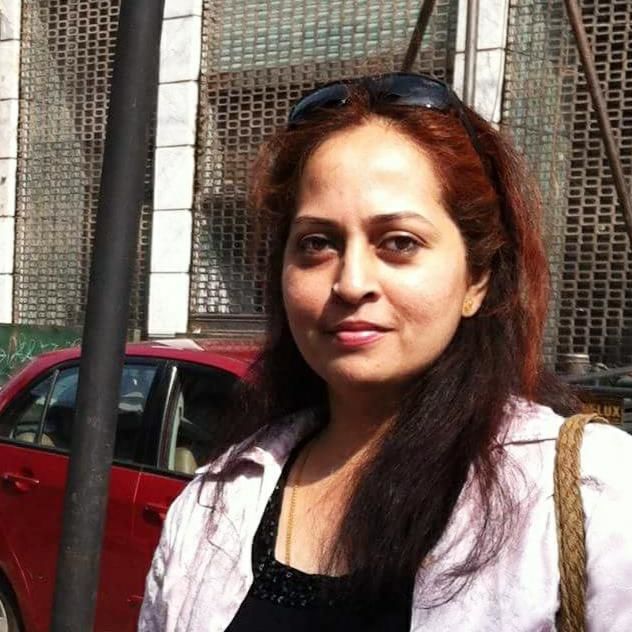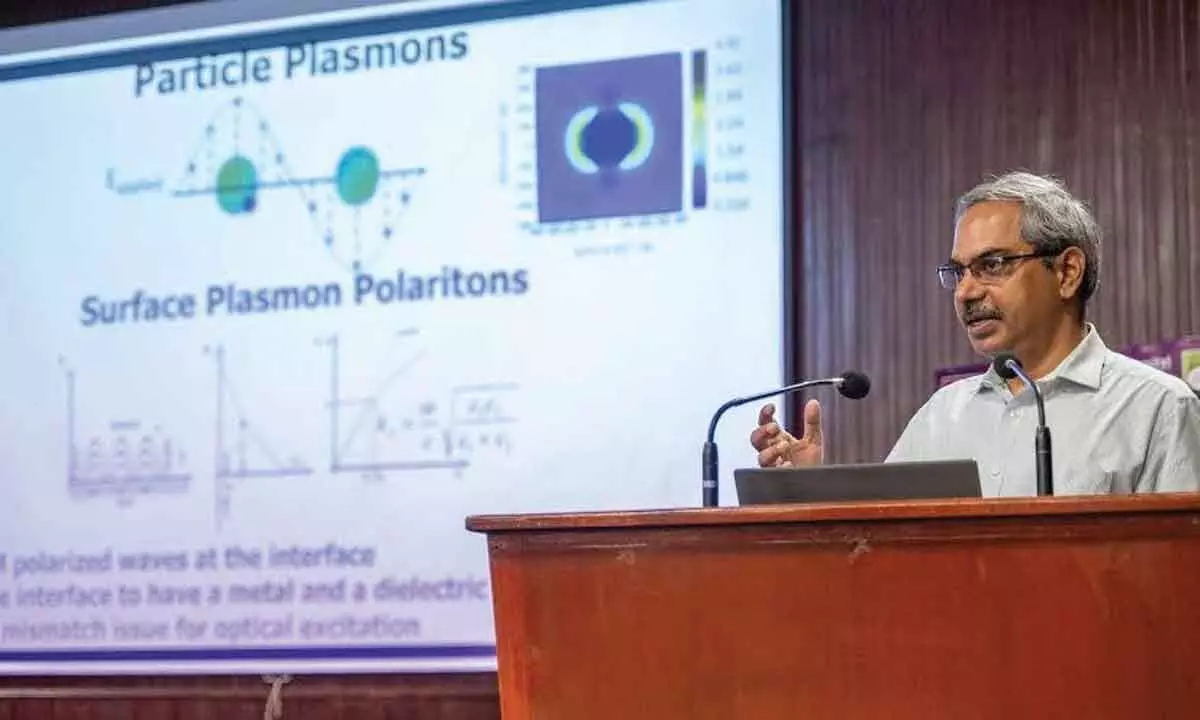Live
- Simultaneous Polls: Priyanka, Shinde in Parliamentary panel
- PM Modi on 2-day visit to Kuwait from Saturday
- Lawyers’ plea on courts location
- Muslim assns to hold Chalo Pendurthi Garjana on Dec 21
- Trump says India charges lot of tariff, threatens to hit back
- Warm welcome to Justice Shameem Akhtar
- AAP to launch scheme for free treatment of elderly
- Vaccines should be administered in time, directs DMHO
- 13 dead as Navy speed boat collides with ferry
- Conducting SET will boost reputation of Palamuru University, says VC
Just In
Visakhapatnam: ‘National Quantum Mission is a great opportunity to scientists’


National Physics Laboratory (NPL-New Delhi) Director Achanta Venugopal speaking at the ‘Young Physicists Meet’ at the campus in Visakhapatnam on Friday
Aiming to seed, nurture and scale up scientific and industrial research and development and create a vibrant, innovative ecosystem in quantum technology (QT), government of India allocated Rs 6,000 crore as part of the National Quantum Mission Fund, said National Physics Laboratory (NPL-New Delhi) Director Achanta Venugopal on Friday.
Visakhapatnam : Aiming to seed, nurture and scale up scientific and industrial research and development and create a vibrant, innovative ecosystem in quantum technology (QT), government of India allocated Rs 6,000 crore as part of the National Quantum Mission Fund, said National Physics Laboratory (NPL-New Delhi) Director Achanta Venugopal on Friday.
Participating as chief guest in ‘Young Physicists Meet’ organised by the Indian Physics Association (IPA), Visakhapatnam chapter, he mentioned that the government is investing heavily on QT to make India one of the leading nations in the development of Quantum Technologies and Applications (QTA).
Further, he stated that the Government of India is providing wide access to funds for establishing start-ups, doing research in the areas of semiconducting technologies, quantum computing, 6g-technologies, green energy, etc.
He advised the young scholars and students to utilise the opportunity to develop indigenous technologies and make India self-reliant. He briefed about the research facilities available at NPL.
The Quantum Ecosystems Technology Council of India (QETCI) director Arun K Pati highlighted the basics of quantum computing, no-hidden theorem, no-deletion theorem which are vital for developing quantum computing programmes for a variety of applications.
GITAM School of Science dean KS Sri Krishna stressed on the importance of the role to be played by the young generation in shaping the country’s future. Professor Gurazada Ravikumar briefed about the superconducting technology in creating quantum computers and its applications.
The Bhabha Atomic Research Center (BARC) former scientist and distinguished Professor BVR Tata explained the role played by Sir C V Raman in shaping the scientific culture in India through his research work and establishing Research Centres. As many as 200 participants from various universities, research organisations participated in the event.

© 2024 Hyderabad Media House Limited/The Hans India. All rights reserved. Powered by hocalwire.com






